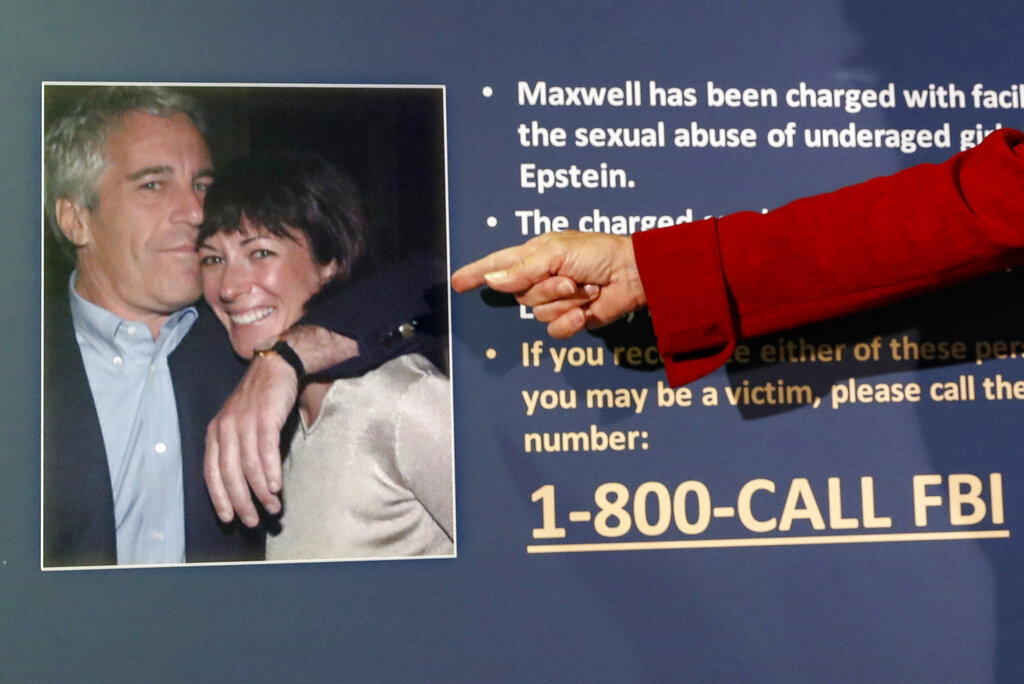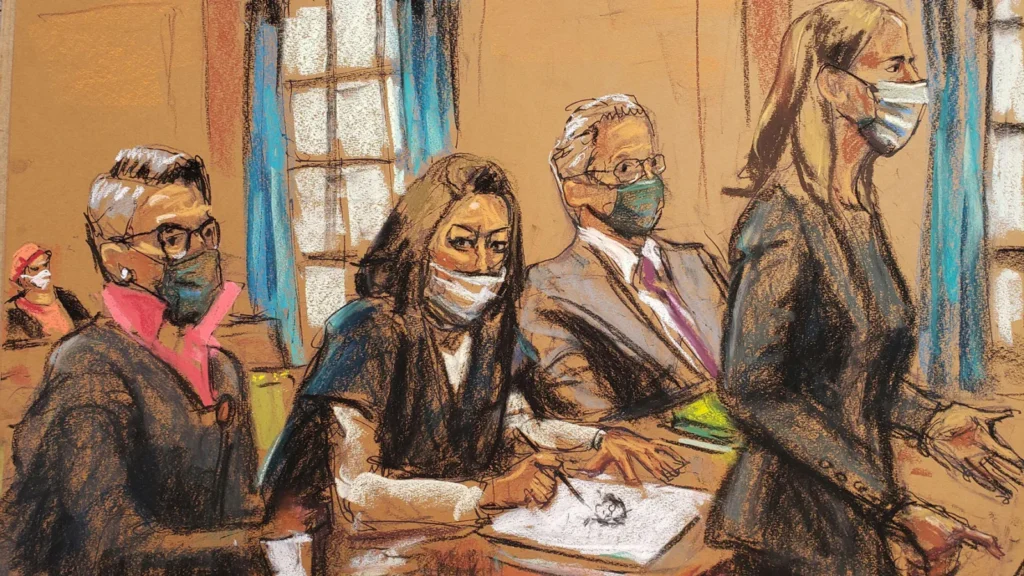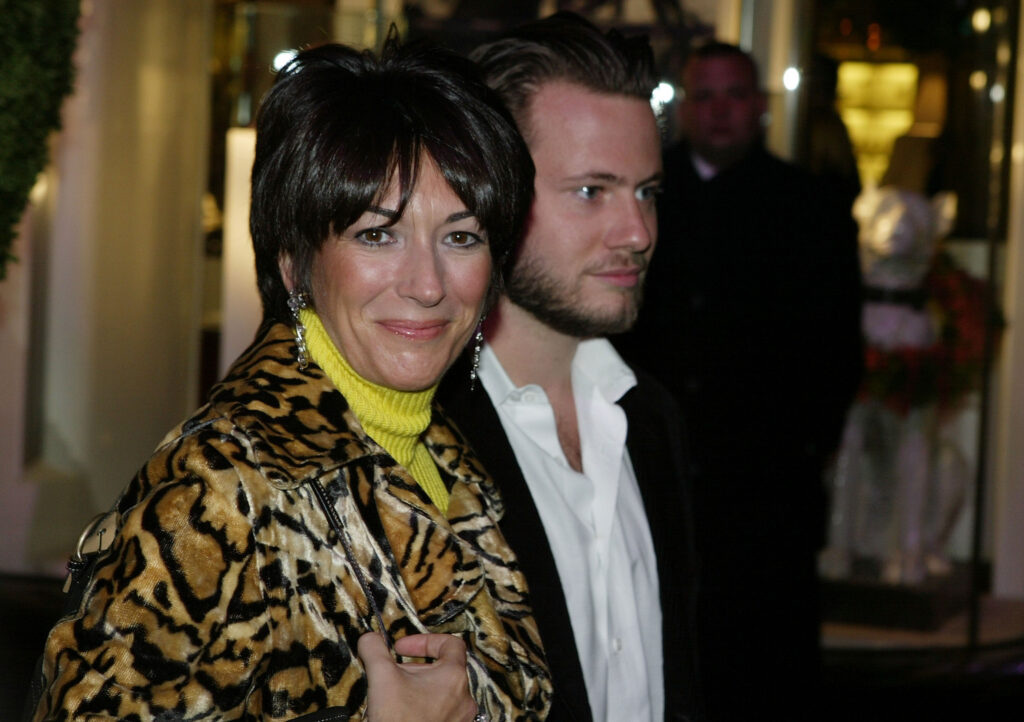‘I Wish I’d Never Met Him’: Epstein Friend Ghislaine Maxwell Appeals Sex Trafficking Conviction, Speaks Out From Prison
The case could have significant implications not only for Maxwell but also for how plea agreements are interpreted nationwide.

Ghislaine Maxwell, who was convicted on charges of sex trafficking and grooming minors along with Jeffrey Epstein, has petitioned the U.S. Supreme Court for her release, arguing that she was covered by a non-prosecution agreement the government made with the pedophile.
Maxwell, 63, has also repeated her assertion that Epstein did not hang himself in his jail cell in 2019, but instead was killed. “I believe that he was murdered,” she says in a new interview. “No one knew how this had happened. I was sure he was going to appeal and I was sure that he was covered under the non-prosecution agreement.”
On the last day before a deadline, Maxwell’s lawyers submitted a 159-page appeal to the Supreme Court, arguing that her prosecution violated the terms of a 2007 non-prosecution agreement made between Epstein and federal prosecutors in Florida. Under the agreement, Epstein pleaded guilty to two state charges related to soliciting minors for prostitution and served a 13-month term, mostly under house arrest.
The deal also included a controversial clause that provided immunity from prosecution for Epstein’s unnamed “co-conspirators.” Maxwell’s attorneys argue that the plain language of the agreement should have shielded her from prosecution, even though her trial and conviction occurred in the Southern District of New York.

Last year, however, the U.S. Court of Appeals for the 2nd Circuit rejected her appeal, ruling that Epstein’s Florida agreement did not bind federal prosecutors outside that jurisdiction unless explicitly stated. Her lawyers now argue otherwise.
“A defendant should be able to rely on a promise that the United States will not prosecute again, without being subject to a gotcha in some other jurisdiction that chooses to interpret that plain language promise in some other way,” Maxwell’s attorney, David Oscar Markus, wrote in the petition.
Mr. Markus further called the case “the perfect vehicle” to resolve ongoing legal disputes about whether plea agreements by federal prosecutors should apply nationally or only within specific jurisdictions. Maxwell’s legal team has framed the case as far-reaching, arguing that it could impact thousands of plea agreements across the country.
Maxwell was convicted in December 2021 on five counts, including sex trafficking and grooming minors for Epstein’s abuse, resulting in a 20-year prison sentence. She is currently held at FCI Tallahassee in Florida. Despite the verdict, Maxwell has continued to deny any wrongdoing and now seeks to have her conviction thrown out entirely, which could potentially lead to her release.

The Supreme Court petition also highlights that negotiations over Epstein’s plea deal were extensive and explicitly addressed the co-conspirator clause. Earlier drafts of the deal included language limiting its protections to the Southern District of Florida, but that language was ultimately removed. Instead, the final agreement’s language referred broadly to “the United States,” which Maxwell’s lawyers argue should encompass all jurisdictions nationwide.
The case has drawn significant public and press attention, in part due to Maxwell’s connections to high-profile figures, including Prince Andrew and President Trump. Information presented at trial included testimony from four women who alleged Maxwell facilitated and participated in Epstein’s abuse, with one claiming she was trafficked across state lines.
Victims described how Maxwell worked closely with Epstein to recruit and groom underage girls as part of a larger international sex trafficking operation.
Epstein, who faced new child sex trafficking charges in 2019, died in a Manhattan jail before his trial could take place. His death was later ruled a suicide, but family members and his lawyers take issue with that ruling.

The Supreme Court is expected to determine whether it will take up Maxwell’s case before its summer recess begins in June. If the Court declines to hear the case, Maxwell will remain in prison to serve her 20-year sentence. However, if the justices agree to review the appeal, it could have significant implications not only for Maxwell but also for how plea agreements are interpreted nationwide.
In her new interview, Maxwell also expressed remorse for not distancing herself from the convicted pedophile. “I honestly wish I had never met him, looking back now,” she said. “I tried to leave, start another new job and move on in the end of ’98, ’99, so I wish that I had been more successful at moving on.”

